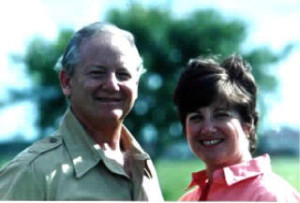
APtravelnews- August 7th,-Washington, DC-Georgetown Medical Center -When my son David, who works in Washington, DC told us he had Non-Hodgkin Lymphoma more than a year ago, Barb and I were frankly devastated! Our oldest Veteran son in his mid 40’s was ill and it wasn’t a cold-it was much, much worse! After 6-months of Chemotherapy, closely monitored by a pre-eminent Hematologist at Georgetown Medical Center, we just heard the news that he has had an excellent remission, no bone marrow test necessary, “come get checkups in 3-months, eat what you will (healthy of course) and go on with your life and that the veil of disaster is off your shoulders” said the Specialist in blood diseases. Yes, we all are celebrating today!
Lymphoma is a type of blood cancer that occurs when lymphocytes–white blood cells that help protect the body from infection and disease–begin behaving abnormally. Abnormal lymphocytes may divide faster than normal cells or they may live longer than they are supposed to.
Lymphoma may develop in many parts of the body, including the lymph nodes, spleen, bone marrow, blood or other organs.
There are two main types of lymphomas:
• Hodgkin lymphoma (HL) (formerly referred to as Hodgkin’s lymphoma) – There are six types of HL, an uncommon form of lymphoma that involves the Reed-Sternberg cells.
• Non-Hodgkin lymphoma (NHL) (formerly referred to as non-Hodgkin’s lymphoma) – There are more than 61 types of NHL, some of which are more common than others. Any lymphoma that does not involve Reed-Sternberg cells is classified as non-Hodgkin lymphoma.
Signs and Symptoms
Certain symptoms are not specific to lymphoma and are, in fact, similar to those of many other illnesses. People often first go to the doctor because they think they have a cold, the flu or some other respiratory infection that does not go away.
Common symptoms include:
• Swelling of lymph nodes, which may or may not be painless
• Fever
• Unexplained weight loss
• Sweating (often at night)
• Chills
• Lack of energy
• Itching
Most people who have these non-specific symptoms will not have lymphoma. However, it is important that anyone with persistent symptoms be examined by a doctor to make sure lymphoma is not present.
Lymphoma Treatment
Some form of chemotherapy, radiation therapy, or a combination of the two is typically used to treat Hodgkin lymphoma. Bone marrow or stem cell transplantation may also sometimes be done under special circumstances. Most patients with Hodgkin lymphoma live long and healthy lives following successful treatment.
Many people treated for non-Hodgkin lymphoma will receive some form of chemotherapy, radiation therapy, biologic therapy, or a combination of these. Bone marrow or stem cell transplantation may sometimes be used. Surgery may be used under special circumstances, but primarily to obtain a biopsy for diagnostic purposes.
Although “indolent” forms of non-Hodgkin lymphoma are not currently curable, the prognosis is still very good. Patients may live for 20 years or more following an initial diagnosis. In certain patients with an indolent form of the disease, treatment may not be necessary until there are signs of progression. Response to treatment can also change over time. Treatment that worked initially may be ineffective the next time, making it necessary to always keep abreast of the latest information on new or experimental treatment options.
Approximately 30 to 60 percent of patients with an aggressive form of non-Hodgkin lymphoma can be cured. go: Lymphoma.org for more information